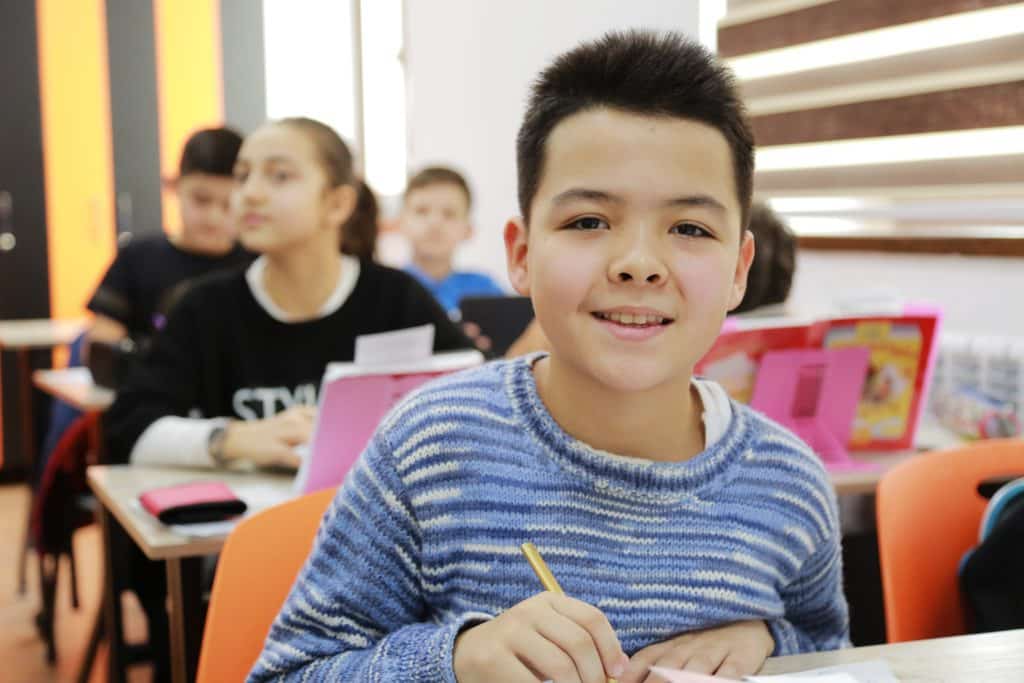The national lockdown in January 2021 had a huge impact on pupils’ learning putting them behind by an average of 3.5 months in maths and 2.2 months in English, research for the Department for Education has found.

The analysis, carried out by the Education Policy Institute and Renaissance Learning for the Department, also found that the relative learning loss for disadvantaged pupils was the equivalent of losing between a third and two-thirds of the progress made over the past decade in closing the disadvantage gap in primary schools.
The research emerged after Sir Kevan Collins, who was tasked with leading the education recovery programme, resigned amid concerns over the funding that the government was offering to fund the education recovery plan.
Last week the government announced a total of £1.4 billion is being invested, including £1 billion to support up to 6 million, 15-hour tutoring courses for disadvantaged school children, as well as an expansion of the 16-19 tuition fund, targeting key subjects such as maths and English.
The government stated that £1.7 billion has already been announced to help children catch up on what they missed during the pandemic, which includes summer schools and mental health support, bringing total investment to over £3 billion.
Dr Mary Bousted of union NEU slammed the government’s plans as “inadequate and incomplete” and “way below the £15bn sum which Kevan Collins, the Education Recovery tzar, judged is needed to repair the damage done to the nation’s pupils because of Covid”.
Paul Whiteman, general secretary of NAHT, which represents leaders in the majority of schools, called the announcement “a damp squib”.
The Education Policy Institute reported that:
- By the first half of the autumn term (October 2020), average learning losses nationally were 3.7 months in maths for pupils in primary school and 1.8 months in reading for pupils in primary school.
- By the second half of the autumn term (December 2020), average learning losses had temporarily recovered to 2.7 months in maths for pupils in primary school and 1.2 months in reading for pupils in primary school.
- However, by the second half of the spring term (March 2021), following the national lockdown and restrictions to in-person teaching, pupil learning losses had then regressed to a similar level at the start of the autumn term, standing at an average loss of 3.5 months in maths for pupils in primary school and 2.2 months in reading for pupils in primary school.
But disadvantaged pupils fared even worse than their peers. The report showed: - By the first half of the autumn term, average learning losses nationally for disadvantaged pupils were 4.3 months in maths for pupils in primary school and 2 months in reading for pupils in primary school.
- By the second half of the autumn term, average learning losses for disadvantaged pupils recovered to 3.3 months in maths for pupils in primary school and 1.6 in reading for pupils in primary school.
EPI findings on losses for disadvantaged pupils in the spring term following restrictions to in-person teaching will be published by the DfE later this year.
But the report states: “This analysis provides further evidence that restrictions to in-person teaching following the pandemic have led to a widening of the ‘disadvantage gap – the gap in school attainment between disadvantaged pupils and their peers.”
The report identifies regional disparities. by the first half of the autumn term, average learning losses in reading for pupils in primary school were:
- 1.5 months in the South West and 1.3 months in London; but
- 2.3 months in the North East and 2.6 months in Yorkshire and the Humber.
By the second half of the autumn term, average losses in reading for pupils in primary school were:
- 0.8 months in the South West and 1.7 months in London; but
- 2.0 months in the North East and 1.7 months in Yorkshire and the Humber.
The sample sizes are smaller for assessments in maths, but evidence still emerged of wide regional disparities in learning loss by region. Learning losses in the second half of the autumn term were again significantly below average in the South West and in London, and significantly above average in the North East and in Yorkshire and the Humber.
EPI findings on regional losses by the spring term following restrictions to in-person teaching will be published by the DfE later this year.
Jon Andrews, report co-author and Head of Analysis at the Education Policy Institute (EPI) said: “This research shows that at a national level, primary school pupils in England were facing average learning losses from the pandemic of around two-three months by the start of the autumn term. Pupils were able to recover learning towards the end of this term – but then, as pupils missed out on in-person learning in early 2021, losses returned to around their early autumn level.
“Our data analysis points to a clear penalty faced by disadvantaged pupils during the pandemic – these pupils have seen greater learning losses than their more affluent peers, which risks widening the overall gap in educational attainment.
“There are also significant regional disparities, with regions such as Yorkshire and the Humber, the North East and the East Midlands seeing higher levels of learning loss than pupils in London and the South West.
“We need to continue to look at how we can support all pupils through effective catch-up programmes, but especially those from disadvantaged backgrounds, whose education has seen the most damage from the pandemic. It’s also important that policies address the large losses seen in certain parts of the country," he concluded.


